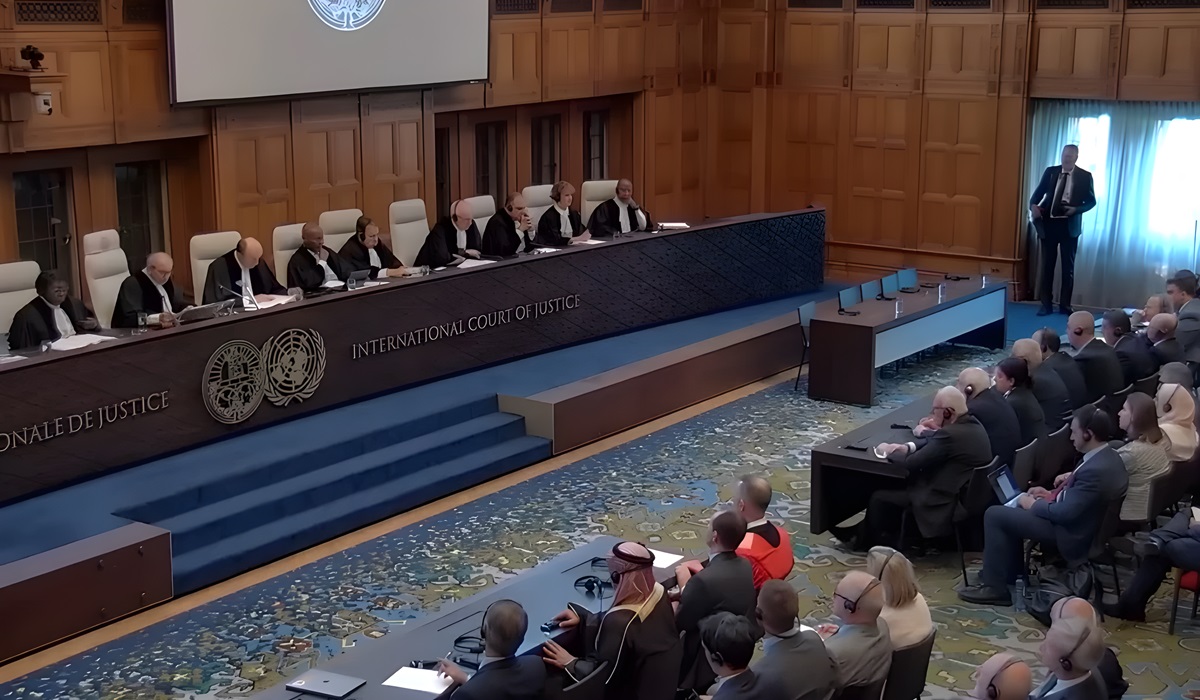Greenbelt Fallout: The Resignation of Ontario’s Housing Minister’s Chief of Staff as the Fall Guy
- TDS News
- Breaking News
- Eastern Canada
- August 23, 2023

Toronto, Ontario- In a surprising turn of events, Ryan Amaro, the Chief of Staff to the Ontario Housing Minister, has tendered his resignation amidst a Greenbelt controversy that has been causing ripples throughout the province. This development has again brought to light the complex dynamics of political accountability and the intricate maneuverings that often occur behind the scenes in government affairs.
The controversy in question revolves around handling issues related to Ontario’s Greenbelt, an ecologically significant area designated for conservation and sustainable development. Allegations surfaced regarding potential breaches in protocols and questionable decision-making processes within the Ontario Housing Ministry, which directly falls under the purview of the embattled Chief of Staff, Ryan Amaro.
A seasoned political operative, Ryan Amaro has long been a member of Premier Doug Ford’s inner circle. Having risen through the ranks due to his keen strategic insights and connections within the political landscape, Amaro’s role as Chief of Staff placed him in considerable influence. However, as controversies continued to swirl around the Greenbelt issue, his resignation was seen as a step towards addressing the public outcry and perceived lack of accountability within the government.
Premier Doug Ford, known for his questionable stance on governance matters, accepted Amaro’s resignation, signalling a willingness to silence the public’s concerns and maintain transparency within his administration. Ford’s decision highlighted the delicate balance leaders often face when choosing between standing by loyal aides and responding to public sentiment.
Adding fuel to the fire, the Ontario Auditor General’s investigation into the Greenbelt controversy revealed concerning details about potential breaches in regulations and possible conflicts of interest. The report alleges that certain developers in the province wielded direct influence over the decision to extract lands from the protected Greenbelt area, ultimately resulting in substantial financial gains for them. According to the report, developers in Ontario were granted a level of influence that significantly impacted the province’s decision to extract lands from the Greenbelt. The report suggests that these developers enjoyed preferential treatment, which extended to influencing the housing minister’s chief of staff decisions. This influence, the report asserts, was aimed at favouring specific landowners who stood to benefit financially from the proposed land development.
The concept of a “Fall Guy” is not new to the world of politics. It refers to a person who is made to bear the brunt of blame and responsibility for a situation, often to protect higher-ranking officials or the broader administration from negative consequences. In this instance, Ryan Amaro’s resignation may be seen as a strategic move to appease public sentiment and divert attention from broader systemic issues.
It’s no secret that individuals who leave high-ranking positions in government often secure lucrative positions in the private sector or within other government agencies. Despite his resignation, Ryan Amaro will likely receive a generous severance package called a “golden parachute.” This compensation aims to ensure a smooth transition for departing officials, even though the public perception might be one of avoiding consequences.
Governments are known for their intricate planning and careful consideration of public perception. The apparent predictability of the “Fall Guy” scenario points to a long-standing pattern within political circles. While such resignations and personnel shifts might seem reactive, they often align with broader strategies that ensure governance continuity and public perception management.
The resignation of Ryan Amaro amidst the Greenbelt controversy sheds light on the complex web of political maneuvering and strategic calculations that often occur in government circles. While this event might seem like an isolated incident, it reflects a recurring pattern in political history. The fallout from such situations can have far-reaching consequences, not only for the individuals involved but also for the public’s perception of accountability within the government. As history has shown, the cycle of resignation, compensation, and eventual return to political life continues to be a characteristic feature of government operations.
Image source Linkedin profile








